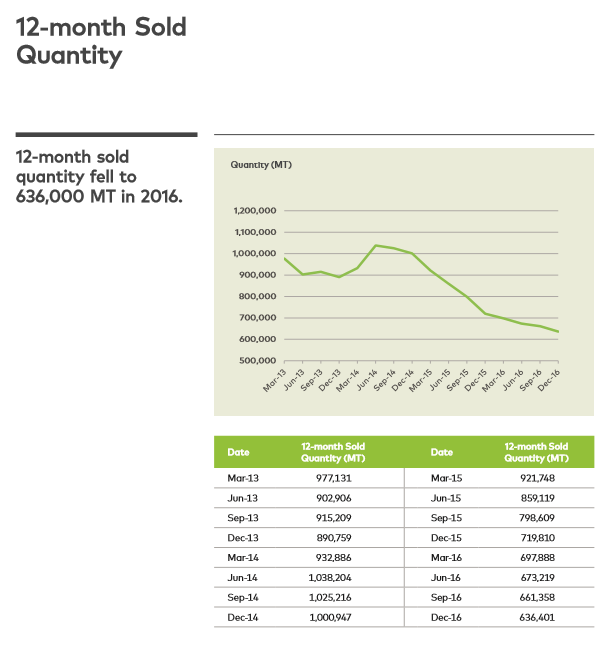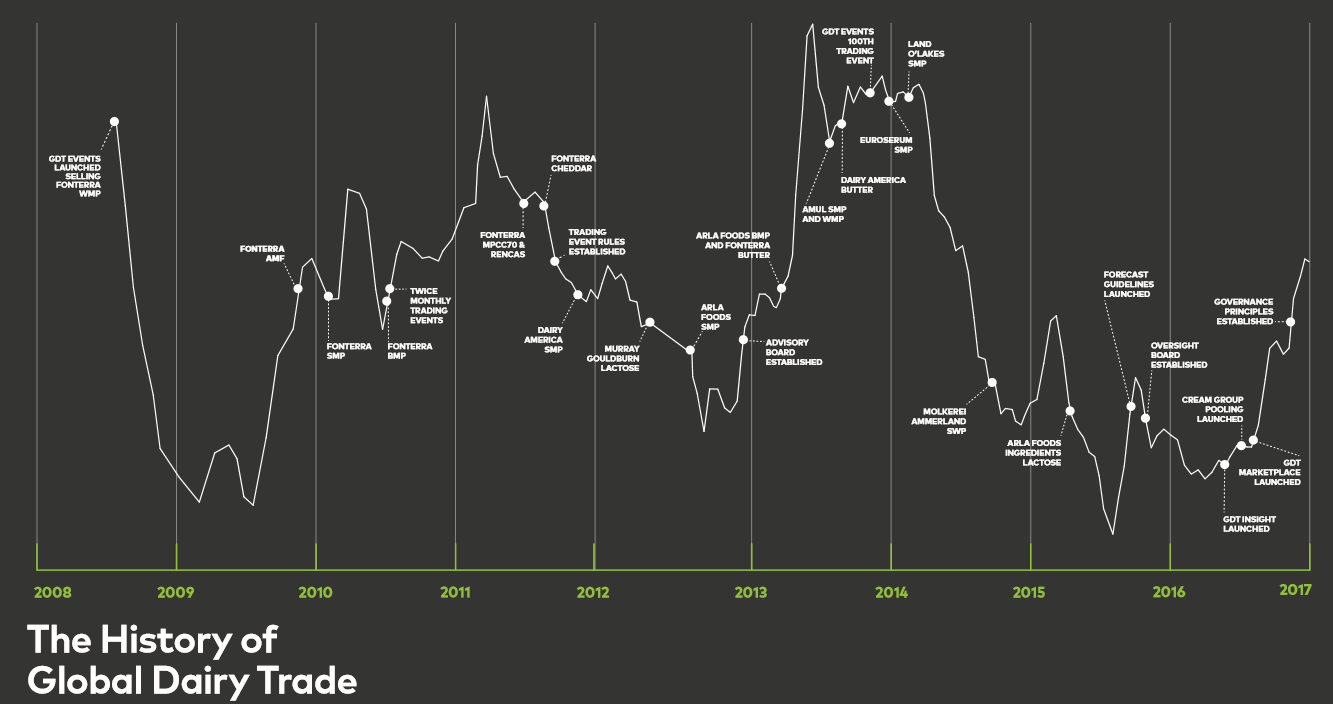New Zealand Dollar Jumps Higher as Milk Prices Recover

The New Zealand Dollar rose against the US Dollar following the release of Global Dairy Trade data on Tuesday.
However, gains were not forthcoming against the British Pound which is the day's best-perfomer following the release of stronger-than-forecast inflation data in the UK.
The NZD nevertheless found demand against other major currencies after it was revealed the price of dairy products was fixed at a level 1.7% above the previous auction’s prices two weeks ago when they registered a -6.3% slump.
The rebound came as a welcome relief to Kiwi traders who had been fearing dairy products were at the start of a deeper decline.
NZD/USD went from a pre-release level of 0.7059 to highs of 0.7088 afterwards.
GBP/NZD fell from 1.7660 to 1.7591 Kiwi Dollars to the Pound afterwards.
Global Dairy trade prices had been strongly rebounding up until 2017 when they registered a more than -16% decline.
Today’s recovery, however, will help assuage fears that a more protracted slowdown is underway.
The Dairy industry constitutes the largest export sector in New Zealand with Whole Dry Milk the greatest single export.
Although prices have rebounded significantly from historic lows reached in 2016 volumes are still down compared to previous years.
For example, in December 2014, over a million metric tonnes were sold (1,000,947), which was followed by 719,810 tonnes in Dec 2015 and 636,401 in Dec 2014.

Overall Economic Outlook for New Zealand Positive
The New Zealand Dollar is likely to remain relatively strong as the outlook for the New Zealand economy remains upbeat.
The two main contributing factors to the strong economic performance is the continued growth of the building trade and high immigration which creates more demand and increases productivity, since most of the entrants are economically active.
This seems to be the view of cconomist Satish Ranchhod at Westpac Bank who has said that although growth should slow it will still be robust enough to ensure the Reserve Bank of New Zealand (RBNZ) is not tempted into cutting interest rates again.
An interest rate cut is usually a negative for a currency and the RBNZ has in the past cut rates to try and stimulate inflation back to target levels around the 2% target.
Ranchhod believes a buoyant housing market centred in Auckland, further diminishes the chances of a rate-cut occurring as it would making borrowing cheaper and risk contributing to the bubble.





